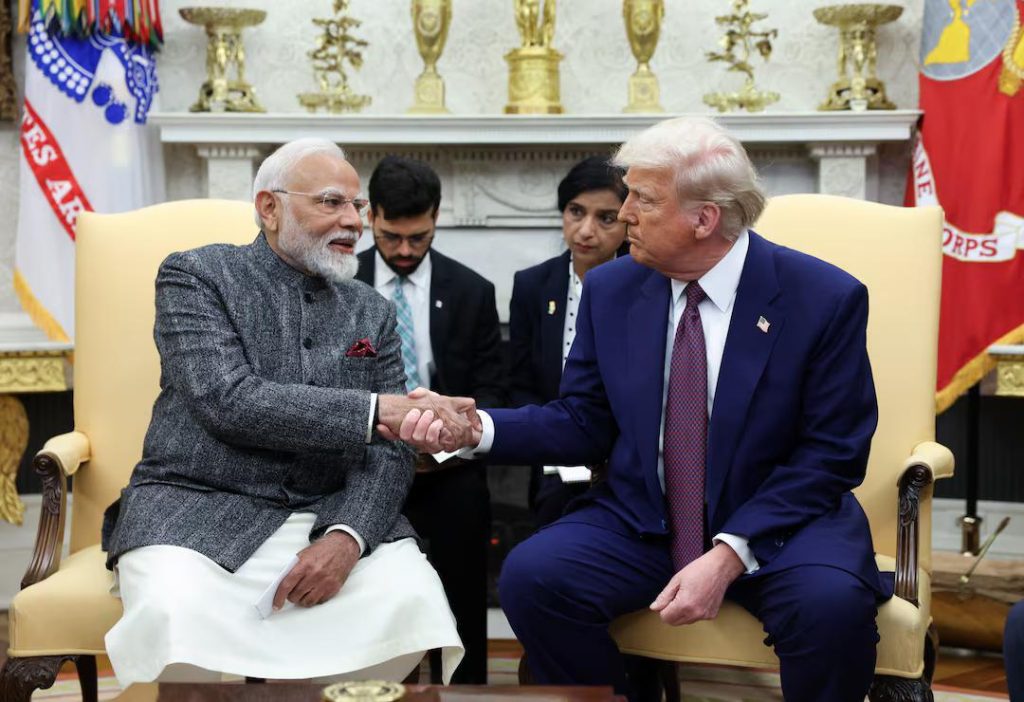
India, US Discuss Digital Trade, Customs & Others at BTA: Report
The ongoing negotiations between India and the United States on the India-US Bilateral Trade Agreement (BTA) have taken a significant step forward. According to a recent report, the two nations have engaged in discussions on digital trade, customs, and a legal framework, with a focus on ensuring the free flow of goods and services while protecting human, animal, and plant health.
The BTA aims to create a comprehensive trade agreement that promotes bilateral trade between India and the US, eliminating unnecessary trade barriers and enhancing market access. The agreement also seeks to promote cooperation in areas such as customs, trade facilitation, and dispute settlement.
According to the report, the latest round of negotiations focused on digital trade, with both sides discussing issues such as e-commerce, data localization, and digital payments. The Indian government has been pushing for a more relaxed approach to data localization, which would allow foreign companies to store data in India without having to set up local servers.
The US government, on the other hand, has been seeking greater access to the Indian market for its digital companies, including e-commerce giants such as Amazon and Walmart. The two sides have also discussed issues such as online consumer protection, intellectual property rights, and cybersecurity.
In addition to digital trade, the negotiations also covered customs and a legal framework. The Indian government has been seeking greater access to the US market for its agricultural and manufacturing products, while the US government has been pushing for greater access to India’s market for its services sector companies.
The two sides have also discussed international trade agreements that aim to protect human, animal, and plant health while ensuring products meet quality standards without unnecessary trade barriers. This includes agreements such as the Sanitary and Phytosanitary (SPS) Agreement and the Agreement on Technical Barriers to Trade (TBT).
The SPS Agreement aims to ensure that measures taken to protect human, animal, and plant health do not unfairly restrict trade, while the TBT Agreement aims to ensure that technical standards and regulations do not create unnecessary trade barriers.
Both sides have agreed to continue negotiations to achieve a conclusion on the BTA. The report did not provide a specific timeline for the completion of the negotiations, but it noted that the two sides have made significant progress in recent months.
The BTA is seen as a major opportunity for India to increase its trade with the US, which is one of its largest trading partners. India’s trade with the US was valued at over $80 billion in 2020, with the US being India’s largest trading partner in terms of bilateral trade.
However, the negotiations have been complicated by several issues, including India’s high tariffs on certain US products such as almonds and apples. The US government has been pushing for greater market access for its agricultural products, while the Indian government has been seeking greater access to the US market for its manufacturing and services sector companies.
The BTA is also seen as an opportunity for the US to increase its trade with India, which is a major player in the global economy. India’s GDP is expected to reach $5 trillion by 2025, making it one of the world’s fastest-growing major economies.
In conclusion, the latest round of negotiations between India and the US on the BTA has made significant progress on issues such as digital trade, customs, and a legal framework. The two sides have agreed to continue negotiations to achieve a conclusion on the BTA, which is seen as a major opportunity for both countries to increase their trade and economic cooperation.
Source: https://x.com/cnbctv18live/status/1932452243166343187






